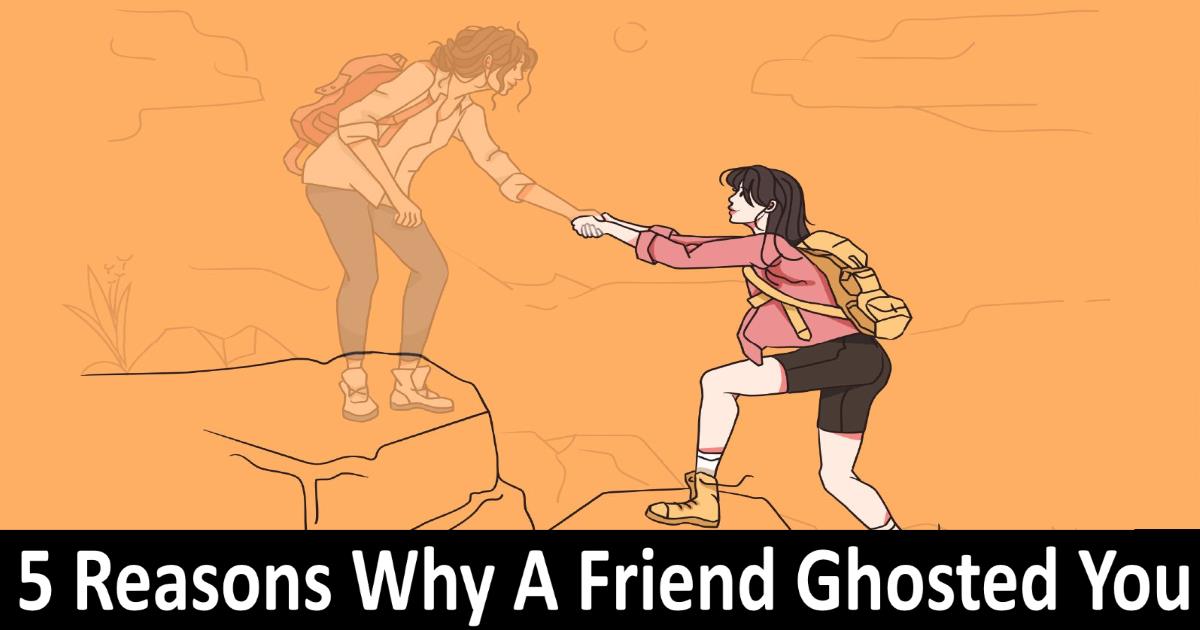The phenomenon of ghosting is not just limited to romantic relationships; it can also occur in friendships. Understanding why a friend might suddenly disappear without a word can be complex. Here are five possible reasons.
1. Personal Issues or Life Changes
- Mental Health Challenges: Your friend might be dealing with mental health issues like depression or anxiety, which can cause them to withdraw and avoid social interactions, even with close friends.
- Major Life Changes: Significant life events such as moving to a new city, starting a new job, or going through a personal crisis can sometimes lead to ghosting. These changes might consume their time and energy, leading to a loss of contact.
- Overwhelmed with Personal Problems: Sometimes, when people are overwhelmed with their own issues, they find it hard to maintain social relationships and might choose to ghost as a way to cope.
2. Perceived Slights or Misunderstandings
- Misinterpretation of Actions or Words: Misunderstandings or miscommunications can lead a friend to feel hurt or offended, prompting them to cut off contact.
- Unresolved Conflicts: If there was an unresolved conflict or argument, your friend might choose to avoid confronting the issue by ghosting.
- Jealousy or Resentment: Feelings of jealousy or resentment over life circumstances, achievements, or other relationships can sometimes lead to ghosting.
3. Differences in Expectations and Boundaries
- Mismatched Friendship Expectations: Differences in how each person views the friendship can lead to ghosting. One might seek a deeper connection, while the other prefers a more casual association.
- Violation of Boundaries: If a boundary has been unknowingly crossed, your friend might feel uncomfortable addressing it directly and choose to ghost instead.
- Changing Dynamics: As people grow and evolve, so do their needs and expectations from friendships. These changing dynamics can sometimes result in one party ghosting.
4. Influence of External Opinions or Peer Pressure
- Negative Influence from Others: Sometimes, the opinions or advice of others can influence a person’s decision to ghost a friend, especially if they are told that the friendship is not beneficial.
- Desire to Fit In: If a friend feels that maintaining a friendship with you might affect their other social relationships or how they are perceived, they might choose to ghost.
5. Avoidance of Confrontation or Discomfort
- Fear of Confrontation: Your friend might find it difficult to express their feelings or deal with confrontational situations, leading them to choose ghosting as an escape route.
- Discomfort with Emotional Intimacy: If the friendship was reaching a level of emotional intimacy that your friend was not comfortable with, they might ghost to avoid these deeper connections.
- Lack of Communication Skills: Some individuals might not possess the necessary communication skills to articulate their feelings or reasons for wanting to end the friendship, resulting in ghosting.
Understanding and Coping with Being Ghosted
Reflect on the Friendship
- Self-Reflection: Consider your own actions or words and whether something might have inadvertently caused hurt or misunderstanding.
- Analyzing the Friendship Dynamics: Reflect on the dynamics of the friendship. Were there signs of the friend being distant or uncomfortable?
Seek Closure
- Reaching Out for Closure: If possible, and if it feels appropriate, you might attempt to reach out to the friend for closure, expressing your feelings and seeking an explanation.
- Accepting the Lack of Closure: In some cases, you may need to accept that closure might not be possible and find ways to come to terms with the ghosting.
Personal Growth and Moving Forward
- Learning from the Experience: Use the experience to learn more about yourself, your friendship needs, and how you handle such situations.
- Strengthening Other Relationships: Focus on other relationships in your life, nurturing and appreciating the connections you still have.
Seeking Support
- Talking to Someone: Discuss your feelings with someone you trust, like another friend, a family member, or a therapist.
- Joining Support Groups: Sometimes, joining support groups where others have had similar experiences can be helpful.
Conclusion
Being ghosted by a friend is a challenging experience, often filled with confusion and hurt. Understanding the possible reasons behind it can provide some perspective, although it might not completely take away the pain.
